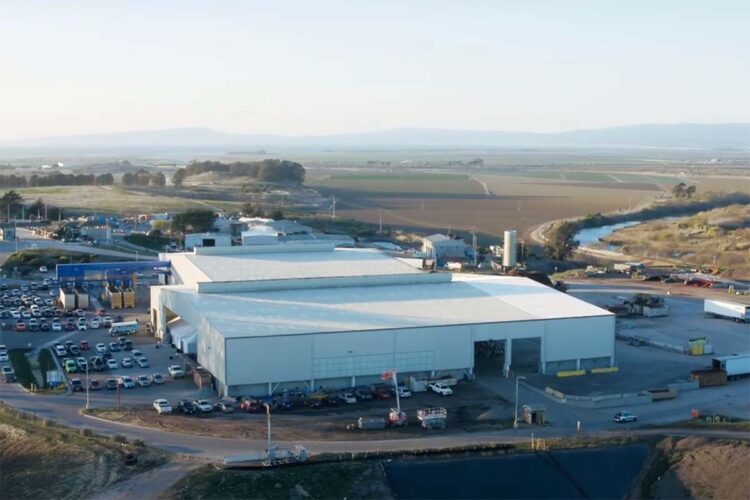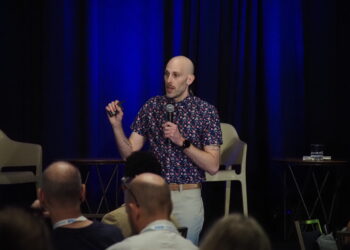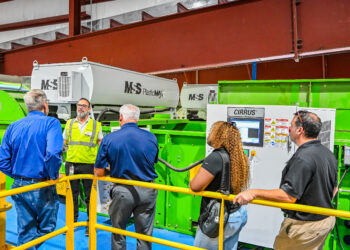A prominent waste management district in California sees state policies and investments opening up the possibility of a zero-waste future, and its new name reflects that vision.
The Monterey Regional Waste Management District, which is based outside the city of Salinas in the Monterey Bay area, recently rebranded to ReGen Monterey, complete with a new logo.
“We’re planning for a future in which waste is no longer seen as an unavoidable problem that we just have to manage,” Zoë Shoats, director of communications for ReGen Monterey, stated in a press release. “After all, there’s no waste in nature, because nature continually regenerates itself. Our new name and logo express our commitment to making progress ever closer to that standard.”
ReGen Monterey operates an advanced MRF, which sorts both curbside recyclables and C&D debris, as well as a composting facility. Additionally, the district operates a “last-chance mercantile” saving saleable items from its landfill, which employs a gas recovery unit. Overall, the district touts a roughly 65% diversion rate.
Its rebrand comes as California begins implementing policies designed to dramatically reduce waste. For example, the state is currently implementing Senate Bill 1383, which mandates organics diversion and compost purchases. As local governments work to meet the organics service requirements, the bill is already driving significant private-sector investments in composting and anaerobic digestion.
Additionally, Gov. Gavin Newsom recently signed into law what’s being called the nation’s strongest extended producer responsibility (EPR) law for printed paper and packaging, Senate Bill 54. In addition to requiring producers to finance collection and recycling, the law mandates reductions in single-use plastics and levies fees on producers to fund environmental projects.
Felipe Melchor, who assumed the position of ReGen Monterey’s general manager in January 2022, told Resource Recycling the laws represent a new hope for the goal of reducing waste. SB 1383 drove ReGen Monterey, local haulers, and the third-party operator of ReGen Monterey’s composting site, Keith Day Company, to work together to add food scraps to the existing yard debris stream.
“We’re continuing to look at the changes in legislation and applying it to our current, everyday business and coming up with some successful models that will lead us in the future,” he said.
Melchor, who previously worked for over two decades for Waste Management, also said ReGen Monterey is looking for state support to reduce waste, including funding for new facilities. To reach zero waste, ReGen Monterey envisions a mixed-waste facility costing tens of millions of dollars that diverts organics and recyclables out of the garbage stream, he said. He pointed to technologies such as gasification and biochar production as possibilities for diverting that stream.
In the meantime, ReGen Monterey is planning to convert its windrow composting facility to using a covered, aerated composting system. The change will cut the processing time in half, he said.
As far as the rebrand goes, the new name reflects the values ReGen Monterey provides to the region, said Melchor. It also differentiates its name from Waste Management, reducing confusion among residents.





























